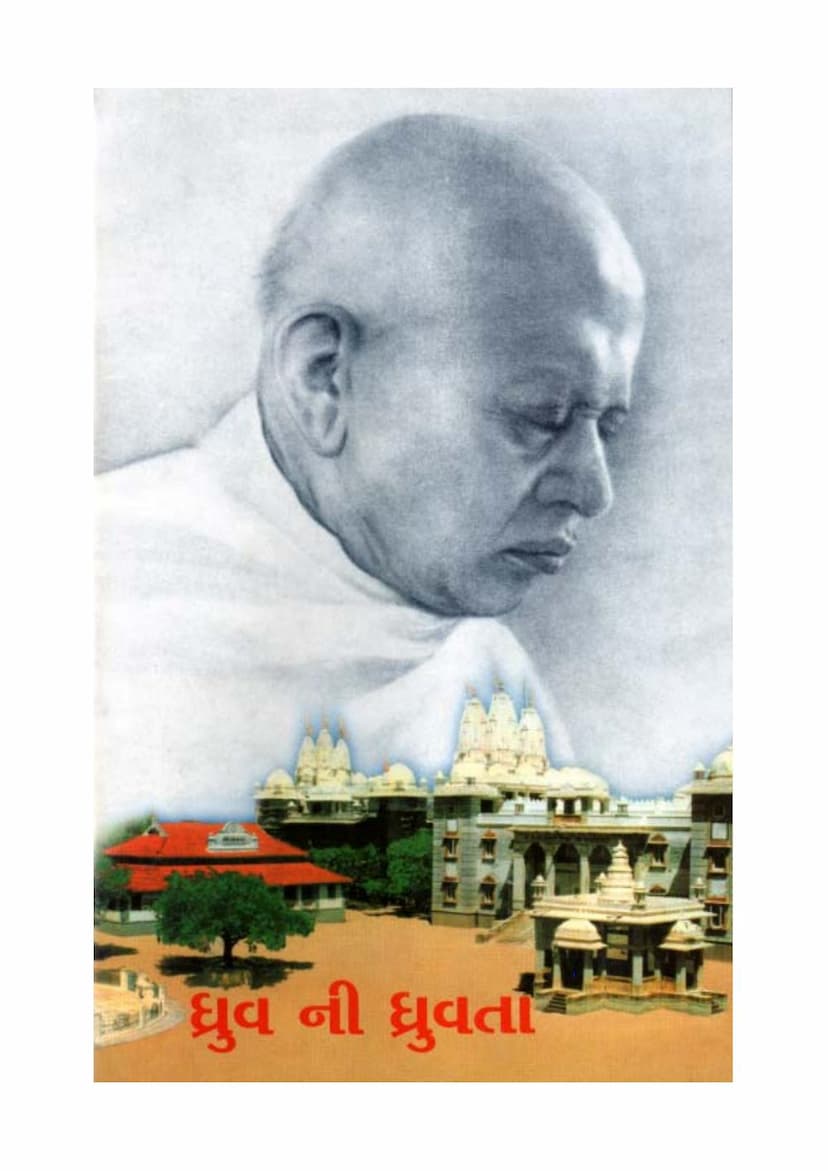Dhruvni Dhruvta
Added to library: September 1, 2025

Summary
The book "Dhruv ni Dhruvta" by Kanjiswami, published by Vitrag Sahitya Prasarak Trust, Kolkata, is a profound spiritual discourse. It is based on a discourse given by Kanjiswami on August 12th and 20th, 1970, commenting on verse 320 of "Samaysar" by Kundakundacharya, with the commentary of Jayasenacharya.
The core theme of the book revolves around the concept of the "eternal Soul" (Dhruv). Kanjiswami, through this discourse, elucidates the subtle and eternal nature of the soul, emphasizing its absolute purity and detachment from all worldly phenomena and even from its own temporary states (paryays).
Here's a breakdown of the key concepts discussed:
- The Eternal and Pure Soul: The discourse repeatedly stresses that the Soul (Atma) is eternally pure, unchanging, and beyond all dualities like birth-death, pleasure-pain, sin-virtue. It is described as "sarva-vishuddh" (completely pure) and "parinamik" (inherently existing by its own nature).
- Beyond Time and Change: The Soul is not bound by time; it is an eternal entity. Its true nature is not affected by any temporary states, actions, or karmic conditions. Even the states of liberation (moksha) or the path to liberation (moksha marg) are considered transient "paryays" (manifestations) and are not the Soul's inherent essence.
- The Nature of "Paryay" (Manifestation/State): The book meticulously distinguishes between the Soul (Dravya) and its transient states (Paryay). While the Soul is eternal, its experiences, emotions, and actions manifest as temporary states. The key insight is that the Soul, in its true essence, is neither the creator nor the enjoyer of these states, whether they are pure or impure.
- The "Dravyaarthik Naya" (Substantial Viewpoint): The discourse heavily relies on the "Dravyaarthik Naya," which focuses on the substantial, eternal reality of a thing. From this viewpoint, the Soul is the unchanging substance, the pure, eternal consciousness.
- Rejection of Transient Attachments: The discourse vehemently argues against any form of attachment or identification with temporary states, including even pure spiritual states or practices like devotion, charity, or penance. These are considered "par-swabhav" (external nature) or "par-dravya" (external substance) from the perspective of the eternal Soul.
- The Concept of "Nishkriya" (Inactive/Unmoving): The Soul is described as "nishkriya" (inactive) because it is not the doer or experiencer of any actions or modifications. The actions and their experiences belong to the "paryay" and not the eternal substance. Even the liberated state (moksha) is not something the Soul "does" or "becomes"; it is the inherent nature that is realized.
- "Pratyaksha Pratibhasmay" (Self-Apparent/Directly Manifest): The Soul is described as "pratyaksha pratibhasmay," meaning it is inherently self-evident and known directly through its own nature. It is not something to be attained or created, but to be realized.
- The Goal of "Samadarsan" (Right Perception): The ultimate aim is to shift one's perspective from the transient "paryays" to the eternal "Dravya" (Soul). This realization of the true nature of the Soul is "Samadarsan" (right perception), which is the first step towards spiritual liberation.
- The Illusion of "Doership" and "Enjoyership": Kanjiswami debunks the notion of the Soul being a "karta" (doer) or "bhokta" (enjoyer) of anything, including karma, actions, or even its own spiritual states. This is a significant point distinguishing Jain philosophy's view of the Soul.
- The Nature of "Upadana" (Material Cause): The Soul is the "shuddha upadana" (pure material cause) of its own essence. All other factors, including karmas and even the process of spiritual progress, are external to its true nature.
- The Emphasis on "Anubhav" (Experience): The ultimate understanding of the Soul comes through direct experience ("anubhav"). The teachings are aimed at guiding the aspirant towards this direct realization of their true, unadulterated Self.
In essence, "Dhruv ni Dhruvta" is a guide to understanding the true nature of the Soul as eternal, pure, and unchanging. It challenges conventional spiritual understanding by asserting that even the path to liberation and the liberated state itself, when viewed from the ultimate perspective, are transient manifestations and not the eternal essence of the Soul. The book encourages a radical shift in perception, urging the reader to identify with this eternal, unmoving, and pure Self, free from all limitations and identifications.